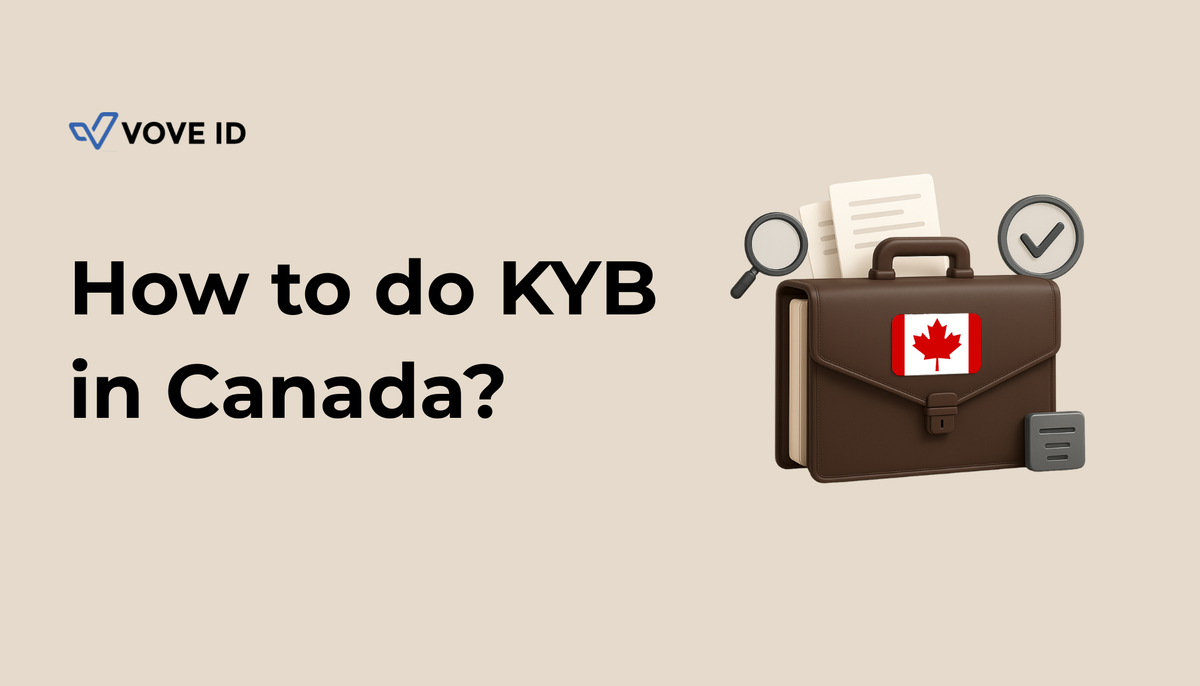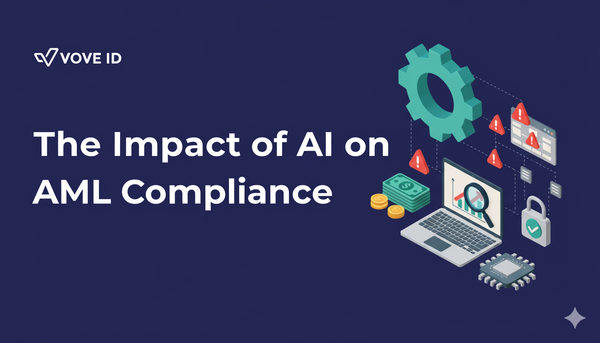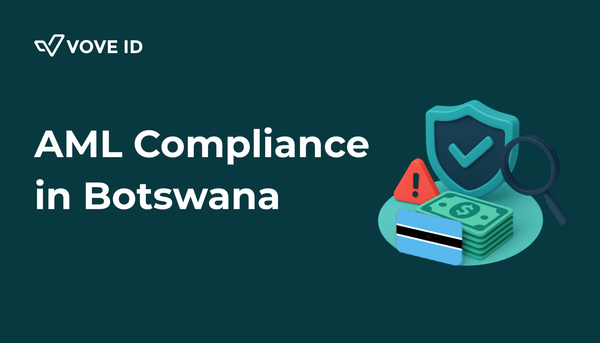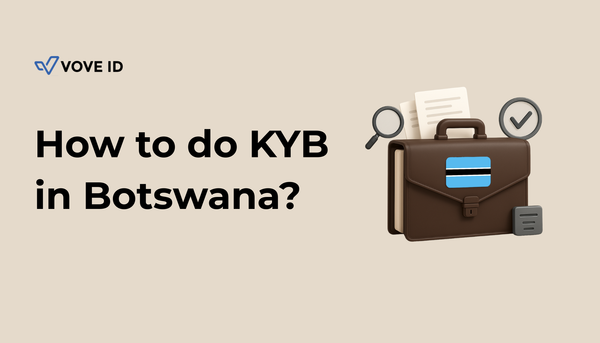KYB Compliance in Canada: 2025 Guide for Regulated Businesses
Explore KYB compliance in Canada for 2025, covering PCMLTFA, FINTRAC, and digital business verification strategies.

Why KYB Is Critical in Canada Today
As Canada prepares for a major FATF evaluation in 2025–2026, regulated businesses face intensifying scrutiny. KYB is no longer a checkbox—it’s a frontline defense in the fight against financial crime. The Financial Transactions and Reports Analysis Centre of Canada (FINTRAC) estimates illicit activities cost the Canadian economy billions annually, with businesses often exploited as conduits. Under the Proceeds of Crime (Money Laundering) and Terrorist Financing Act (PCMLTFA), KYB ensures reporting entities verify the legitimacy of business clients, safeguarding the financial system. Non-compliance penalties can reach C$20 million for serious violations, depending on the offense category. This guide details KYB requirements, methods, and best practices for 2025 compliance.
What is KYB?
KYB is critical in Canada’s fight against money laundering and terrorist financing. It ensures businesses aren't used as fronts for illicit activity by verifying their identity and legitimacy—corporations, trusts, partnerships, or unincorporated organizations—before financial engagement. Governed by the PCMLTFA and enforced by FINTRAC, KYB confirms existence, identifies beneficial owners (individuals who own or control, directly or indirectly, 25% or more of the business’s shares or voting rights), and assesses risks. Non-compliance risks legal penalties and reputational damage, especially with the 2025–2026 FATF evaluation looming.
With a clear understanding of KYB’s purpose, the next section identifies who must comply.
Who Must Comply?
KYB applies to “reporting entities” under the PCMLTFA, including:
- Banks and credit unions
- Money services businesses (MSBs)
- Securities dealers and investment advisors
- Real estate brokers and casinos
- Factoring and leasing firms (as of April 2025, due to their vulnerability to money laundering, per the Budget Implementation Act, 2024, No. 1)
Entities dealing in virtual currency must also comply, reporting transactions over C$10,000. Non-regulated businesses may adopt KYB voluntarily to mitigate risks in high-risk sectors like international trade.
With clarity on who’s affected, the next step is understanding how businesses can comply.
Key Requirements
FINTRAC mandates the following KYB steps:
- Confirm Existence: Verify the business using official documents like a business license, articles of incorporation, or provincial registry records.
- Identify Beneficial Owners: Determine individuals who own or control, directly or indirectly, 25% or more of the business’s shares or voting rights, verifying their identities.
- Screen Risks: Check for sanctions, politically exposed persons (PEPs), and adverse media ties.
- Assess Risks: Evaluate the business’s risk profile based on its operations, jurisdiction, and transaction patterns, applying Enhanced Due Diligence (EDD) for high-risk entities.
- Monitor Transactions: Track activities for suspicious patterns, updating risk profiles as needed.
- Retain Records: Keep KYB records for five years after the relationship ends, available to FINTRAC within 30 days upon request.
Digital KYB tools—such as API-based business registry lookups, UBO mapping, and AI-driven screening—can enhance efficiency in meeting these requirements.
With these standards in place, the focus shifts to implementation.
Challenges & Solutions
KYB compliance presents challenges:
- Complex Ownership Structures: Identifying beneficial owners in multi-layered entities is difficult.
- Regulatory Updates: Keeping up with changes, like the July 2024 sanctions evasion reporting requirement, adds complexity.
- Data Verification: Inconsistent or outdated registry data can delay verification.
- Resource Constraints: Manual processes are time-intensive for smaller firms.
To address these, businesses are adopting automated KYB platforms, conducting regular staff training, and leveraging trusted third-party verifiers. Solutions like VOVE ID, with API-driven verification and real-time screening, can streamline compliance. Book a demo to meet 2025 KYB standards confidently.
The following section explores strategies to optimize compliance.
Best Practices
Optimize KYB compliance with these strategies:
- Use Automation: Leverage digital tools for real-time business verification and sanctions screening.
- Conduct Risk Assessments: Regularly evaluate business clients for money laundering risks.
- Train Staff: Ensure teams are updated on FINTRAC guidelines and sanctions evasion rules.
- Partner with Experts: Collaborate with KYB platforms tailored for Canadian regulations.
- Monitor Updates: Stay informed on PCMLTFA changes and the 2023-2026 AML/ATF Strategy.
VOVE ID offers secure, Canada-focused KYB solutions, ideal for fintechs and MSBs.
Reporting entities must retain KYB records for five years after a relationship ends. Records of large cash or virtual currency transactions (C$10,000+) must be kept and provided to FINTRAC within 30 days upon request.
Canadian KYB Compliance Checklist 2025
Follow these six essential steps to meet FINTRAC and PCMLTFA requirements:
- Verify – Confirm the business’s legal existence using official documents (e.g., articles of incorporation, licenses).
- Document – Identify and screen beneficial owners (those holding 25%+ ownership) for sanctions, PEPs, or adverse media.
- Assess – Evaluate the business’s risk profile based on industry, geography, and transaction behavior.
- Apply EDD – Implement Enhanced Due Diligence measures for high-risk entities or complex ownership structures.
- Monitor – Continuously track transactions for suspicious activity; update risk profiles as needed.
- Store – Retain KYB records securely for five years after the business relationship ends.
💡 Tip: Regular staff training and automated KYB platforms can streamline compliance and reduce risk.
Canada’s beneficial ownership threshold under the PCMLTFA is 25%, while the EU’s AML Regulation may tighten to 15% by late 2025. The U.S. (via FinCEN) aligns with Canada at 25% but requires deeper verification under the Corporate Transparency Act.
Recent Updates
📢 Key Developments:
- Factoring and leasing firms added to PCMLTFA scope (April 2025).
- Sanctions evasion reporting mandated (July 2024) [https://www.canada.ca/en/department-finance/news/2023/03/budget-implementation-act-2023-no-1-receives-royal-assent.html].
- Emphasis on RegTech adoption per the AML/ATF Strategy 2023–2026.
Trends
KYB is advancing with technology. AI-driven tools enhance verification accuracy, and real-time monitoring systems detect suspicious activities instantly. Industry forecasts from Deloitte and Accenture project a 20–30% increase in RegTech adoption among Canadian reporting entities by 2026, driven by AI, automation, and FATF scrutiny. FINTRAC’s focus on new sectors like factoring firms and virtual currency dealers underscores the need for robust KYB ahead of Canada’s upcoming FATF mutual evaluation in 2025–2026.
What methods can be used for KYB verification?
Options include confirmation of existence (using official documents), reliance on prior verification by a trusted entity, or simplified verification for low-risk entities like publicly traded companies.
Are there exceptions for low-risk businesses?
Yes, government agencies and publicly traded firms may qualify for simplified verification under FINTRAC rules.
Wrapping Up
KYB in Canada ensures compliance with PCMLTFA and FINTRAC regulations, protecting businesses from financial crime. Digital tools and proactive strategies streamline the process. Explore how VOVE ID can help you stay ahead of 2025 compliance mandates. Book a Demo with VOVE ID, secure your KYB process as international scrutiny grows.




